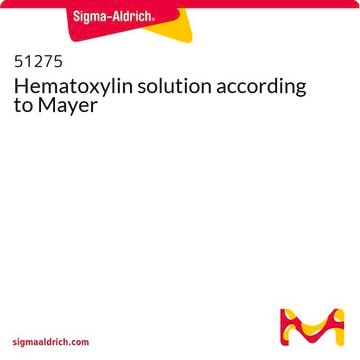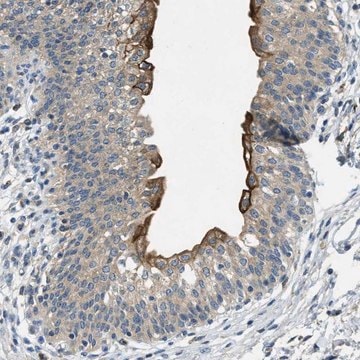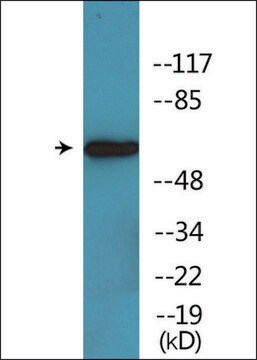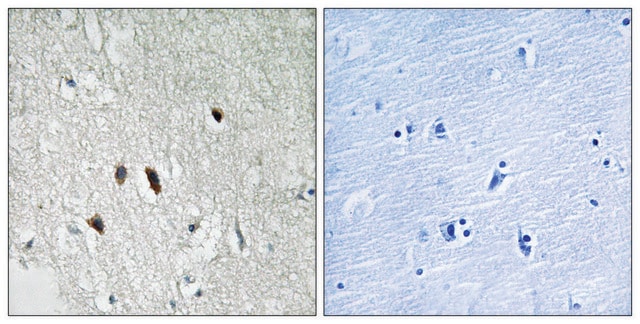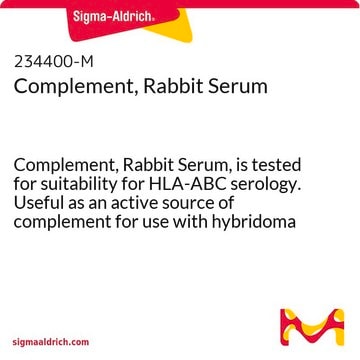SAB1404621
Monoclonal Anti-RIPK2, (C-terminal) antibody produced in mouse
clone 6F7, purified immunoglobulin, buffered aqueous solution
Sinónimos:
CARD3, CARDIAK, CCK, GIG30, RICK, RIP2
About This Item
ELISA (i)
IHC (p)
WB
immunohistochemistry (formalin-fixed, paraffin-embedded sections): suitable
indirect ELISA: suitable
western blot: 1-5 μg/mL
Productos recomendados
biological source
mouse
Quality Level
conjugate
unconjugated
antibody form
purified immunoglobulin
antibody product type
primary antibodies
clone
6F7, monoclonal
form
buffered aqueous solution
mol wt
antigen ~38.21 kDa
species reactivity
mouse, human, rat
technique(s)
capture ELISA: suitable
immunohistochemistry (formalin-fixed, paraffin-embedded sections): suitable
indirect ELISA: suitable
western blot: 1-5 μg/mL
isotype
IgG2aκ
NCBI accession no.
UniProt accession no.
shipped in
dry ice
storage temp.
−20°C
target post-translational modification
unmodified
Gene Information
human ... RIPK2(8767)
Categorías relacionadas
General description
Immunogen
Sequence
LQPGIAQQWIQSKREDIVNQMTEACLNQSLDALLSRDLIMKEDYELVSTKPTRTSKVRQLLDTTDIQGEEFAKVIVQKLKDNKQMGLQPYPEILVVSRSPSLNLLQNKSM
Application
Biochem/physiol Actions
Physical form
Disclaimer
¿No encuentra el producto adecuado?
Pruebe nuestro Herramienta de selección de productos.
Storage Class
10 - Combustible liquids
wgk_germany
WGK 1
flash_point_f
Not applicable
flash_point_c
Not applicable
Elija entre una de las versiones más recientes:
Certificados de análisis (COA)
¿No ve la versión correcta?
Si necesita una versión concreta, puede buscar un certificado específico por el número de lote.
¿Ya tiene este producto?
Encuentre la documentación para los productos que ha comprado recientemente en la Biblioteca de documentos.
Nuestro equipo de científicos tiene experiencia en todas las áreas de investigación: Ciencias de la vida, Ciencia de los materiales, Síntesis química, Cromatografía, Analítica y muchas otras.
Póngase en contacto con el Servicio técnico
